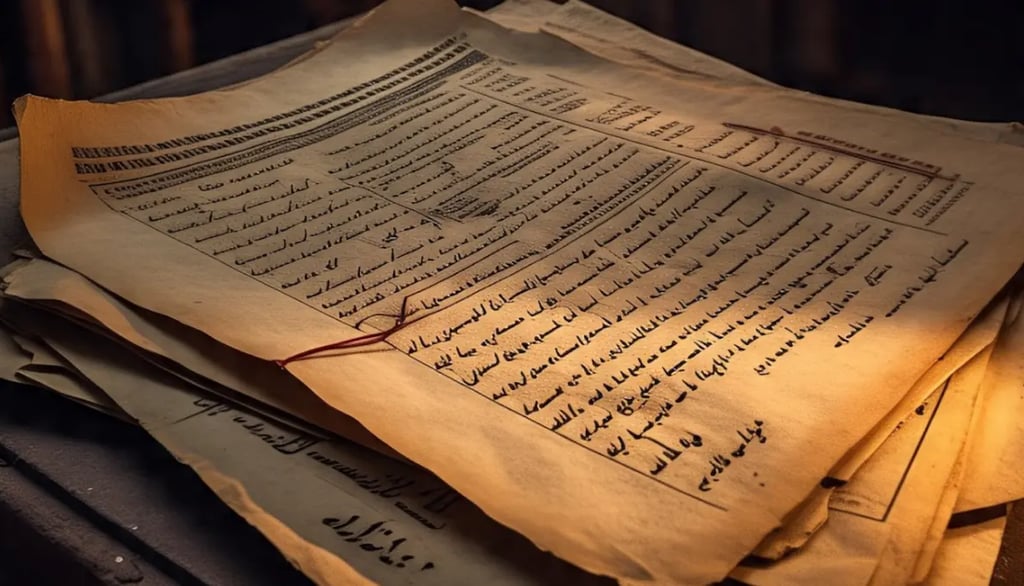Overcoming the Challenge of Translating Old Urdu Documents
Translating Old Urdu Documents: Unlock the secrets of old Urdu property documents in Uttar Pradesh and Bihar. Facing translation challenges? Learn how our expert team bridges the gap from historical Arabic/Persian script to accessible English.
Tripti Srivastava
5/14/20252 min read


Unlock the secrets of old Urdu property documents: For many in India, particularly in states like Uttar Pradesh and Bihar, the dusty corners of family archives hold invaluable treasures: old land documents penned in a script that is increasingly becoming a relic of the past. These documents, often written in a rich blend of Arabic and Persian influenced Urdu, once served as the official language of the courts. Today, however, translating this historical script presents a significant hurdle, leaving individuals struggling to access and understand records crucial to their property rights.
The decline in the widespread use of Arabic and Persian script for writing Urdu is the crux of the problem. While many still speak and understand the Urdu language, the ability to read and decipher its traditional script is dwindling with each passing generation. This creates a widening gap between the linguistic heritage embedded in these old documents and the comprehension of the present-day population.
The Urdu prevalent in old court documents further compounds this challenge. Heavily influenced by Arabic and Persian vocabulary and stylistic conventions, it differs significantly from contemporary Urdu. This specialized dialect requires a unique understanding, making the task of translation far from straightforward. Individuals seeking to understand their ancestral land records often face a frustrating and time-consuming process, navigating a linguistic landscape that feels increasingly foreign.
While individuals possessing the knowledge to decipher these historical texts still exist, they often remain disconnected from the technical resources and opportunities that would allow them to put their skills to use. These linguistic custodians might not have the means or the platform to offer their expertise, leaving countless documents unread and their vital information locked away.
However, a beacon of hope has emerged in this challenging scenario. We have taken a proactive approach to bridge this gap. Through diligent effort, they have sought out and connected with these rare individuals who possess the invaluable ability to understand the Urdu of old documents.
As a result of this dedicated outreach, the team at PLE is now equipped to offer a vital service: the translation of these oldest Arabic and Persian mixed Urdu documents. They are committed to making these historical records accessible to those who need them most, transforming indecipherable script into a language understood today – English.
For those holding onto these crucial property documents, the Urdu language no longer needs to be a barrier. The information that holds immense value and significance can now be unlocked and understood. The challenges of translating from this older form of Urdu to Hindi or English might have previously conjured images of these documents gathering dust, their stories untold. But now, with the expertise of organizations like us, this narrative is changing. The past is becoming accessible, ensuring that these vital records can finally be read, understood, and used to secure the rights and heritage of their owners.
Subscribe to our newsletter
Enjoy exclusive special deals available only to our subscribers.
